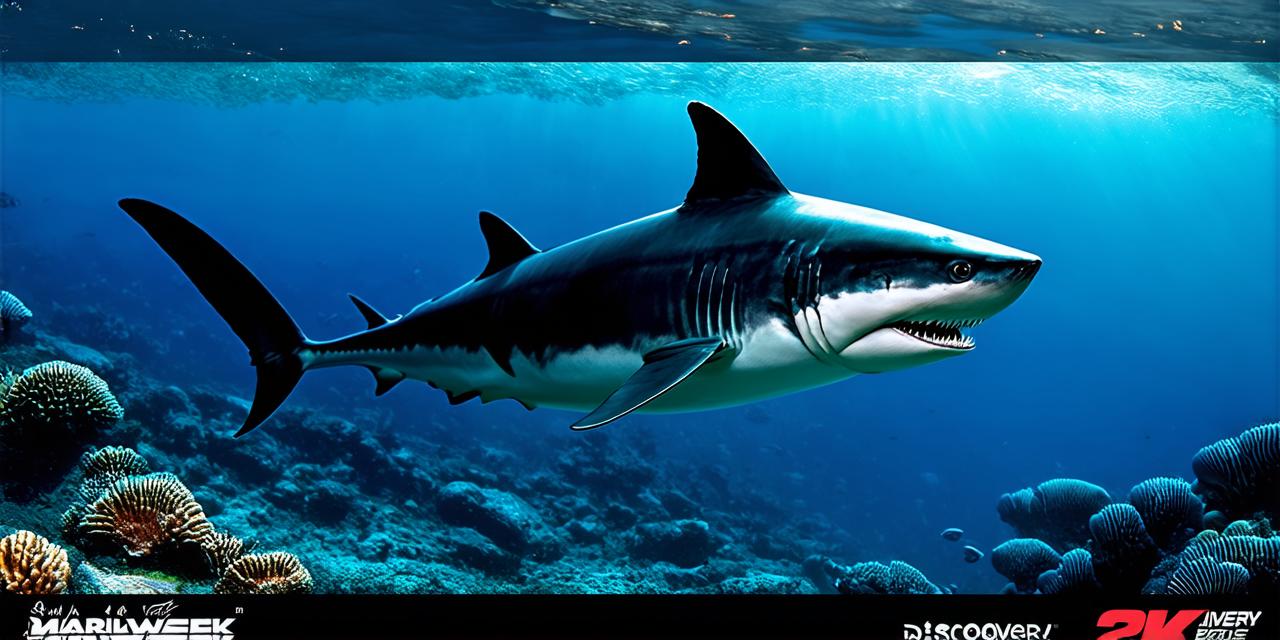Introduction

Shark Week is a week-long television event that airs annually on the Discovery Channel. Since its inception in 1987, it has become one of the most popular and highly anticipated events in television history. But who is the host of Shark Week? In this article, we will explore the history and success of Shark Week and analyze the role of the host in making it such a cultural phenomenon.
History of Shark Week
The idea for Shark Week was originally conceived by television producer Michael Levine, who pitched the concept to Discovery Channel president Marty Rackin. Rackin was immediately interested in the idea and gave Levine the green light to develop it further. The first season of Shark Week aired in 1987, featuring four episodes that showcased the various species of sharks found in the world’s oceans.
Over the years, Shark Week has grown to become a staple of summer television, attracting millions of viewers each year. The success of Shark Week can be attributed to several factors, including its unique blend of science and entertainment, its focus on real-life encounters with these magnificent creatures, and its ability to capture the public’s imagination and fascination with sharks.
Role of the Host
While Shark Week is known for its thrilling footage of sharks in action, it is also the host who brings the show together and guides viewers through each episode. Over the years, several hosts have graced the Shark Week stage, including Steven Spielberg, Paul Nicklen, and Andy Serkis. However, one name has become synonymous with Shark Week – David Attenborough.
David Attenborough is a British broadcaster and natural historian who has been hosting nature documentaries for over six decades. He first appeared on Shark Week in 2016 as the host of the episode “Sharks: The Secret Lives.” Since then, he has become a regular on the show, captivating audiences with his knowledge and passion for sharks.
Attenborough’s role as the host of Shark Week is critical to the success of the show. He provides viewers with a unique perspective on the world of sharks, sharing fascinating facts, scientific insights, and personal anecdotes that help to humanize these often misunderstood creatures. His charisma and warmth also make him relatable to audiences, making it easier for them to connect with the subject matter and appreciate the beauty and complexity of shark life.
The Science Behind Sharks
Sharks are one of the most fascinating creatures on Earth, with a long evolutionary history that dates back over 400 million years. These animals have developed unique adaptations that make them perfectly suited to their role as top predators in the ocean.
One of the key aspects of shark biology is their sensory system. Sharks have highly sensitive eyes that are adapted to low-light conditions, allowing them to see clearly even in the depths of the ocean. They also possess a highly developed sense of smell, which they use to locate prey and communicate with other sharks.
Sharks also have several unique physical adaptations that make them exceptional swimmers. Their streamlined bodies and powerful tails allow them to swim at speeds of up to 30 miles per hour, while their sharp teeth and jaws enable them to catch and eat large prey items such as whales and seals.
The Importance of Conservation
Despite their fearsome reputation, sharks are facing numerous threats in the wild, including habitat loss, pollution, and overfishing. These factors have led to a decline in shark populations around the world, with some species now listed as endangered or critically endangered.
Conservation efforts are critical to ensuring the survival of these magnificent creatures. One of the most important initiatives is the creation of marine protected areas (MPAs), which provide a safe haven for sharks and other marine life. These areas help to reduce bycatch, prevent habitat destruction, and promote sustainable fishing practices.
Education and Awareness
Education and awareness are also crucial in the fight to protect sharks and their habitats. Shark Week has played a significant role in raising public awareness about the importance of these animals and their role in maintaining the balance of marine ecosystems.
The show has inspired millions of viewers to learn more about sharks and their habitats, leading to increased support for conservation efforts and a greater appreciation for the beauty and complexity of these creatures. In addition, Shark Week has also provided a platform for scientists and researchers to share their knowledge and discoveries with a wider audience, helping to dispel myths and misconceptions about sharks and their behavior.
Case Study: The Great White Shark
One species of shark that has captured the public’s imagination more than any other is the great white shark. These animals have been depicted in numerous movies and television shows, including Steven Spielberg’s classic film “Jaws.”
Despite their fearsome reputation, great white sharks are not the man-eaters they are often portrayed to be. In fact, attacks on humans by these animals are extremely rare, with an average of just 5-10 incidents per year worldwide.
However, great white sharks are still facing numerous threats in the wild, including hunting and habitat loss. Conservation efforts have been implemented to protect these animals, including the creation of MPAs and the establishment of hunting quotas.
Summary
Shark Week is a television phenomenon that has captured the imagination of millions of viewers around the world. The success of the show can be attributed to several factors, including its unique blend of science and entertainment, its focus on real-life encounters with these magnificent creatures, and its ability to capture the public’s
